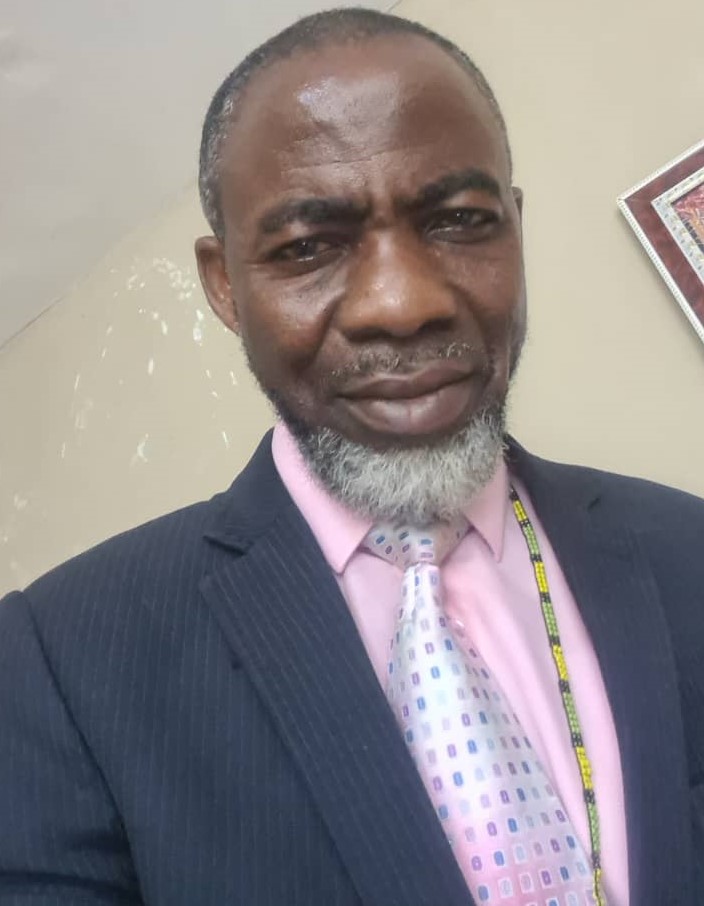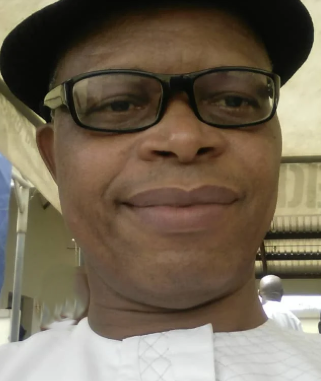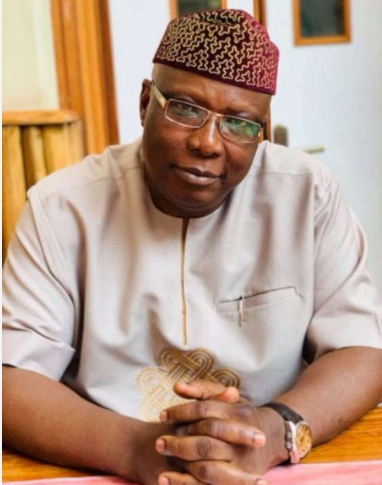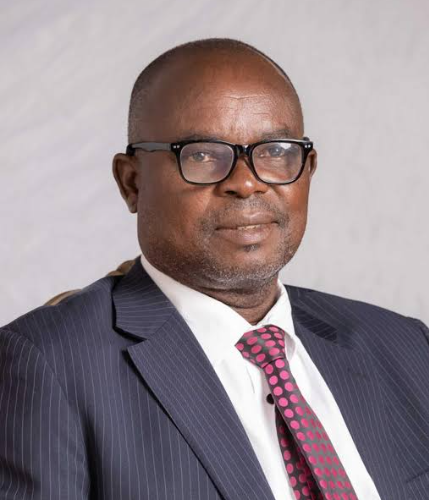By Abdulwarees Solanke
IN SIZE, Nigeria and Singapore are poles apart. But in strategic eminence in their respective regions, both countries have somewhat similar qualifications.
Nigeria is popular as Giant of Africa all over the world just like the tiny Singapore is celebrated as an Asian Tiger globally.
Last year Singapore clocked 55, with remarkably compelling evidences of development. But Nigeria, clocking 64 later this year as it also reaches 25th year of democratization in the 4th Republic experiment, is still pursuing so many reform initiatives and development projects, particularly with the Renewed Hope Agenda of President Bola Ahmed Tinubu, to arrive at the Singaporean station of transformation.
So, as Nigeria inches rapidly towards this auspicious celebration, there is a need to interrogate the options available for the country to achieve true nationhood and national transformation.
Is there anything Nigeria, the African Voice and Giant can learn from the tiny Singapore bestriding Asia as a titan or a tiget?
Indeed, there comes a time in the life of any nation desirous of change, transformation and development that difficult choices and decisions must be made. This definitely is the time for Nigeria. But that choice or decision is not for the government or the leadership alone to make.
While the buck may stop at the desk of the leader, whatever choice or decision he makes in the final analysis is still subject to citizens’ approval and support.
For us in Nigeria, the challenge is not only of economic dimension, even though it seems most manifest in the past dismal macroeconomic indices of low productivity, unemployment, poor savings, investment and consumption.
These, the present leadership in working assiduously to reverse since last year of coming to power..
Our real challenge can be located within the structure of our polity which invariably determines the colour of our politics, dictates the nature of our governance and affects the stability of our economy.
The combination of the structure of our polity, colour of our politics and fibre of our governance has so far been dictating how various stakeholders within and outside government support, validate and implement reform projects and policies in the country.
The issue is: we have not outlived the politics of prebendalism in our land as we still grapple with foundational elements of nation building crisis. The virulent criticisms, indeed the rejection of many public policies by interest groups are pointers to the weakness of our national cohesion, when the dominant themes of discourses in the press and the airwaves are usually national restructuring, marginalization, corruption and other negativities that compromise national growth and development.
In this scenario, no matter how sincere or well-intentioned a leader or government may be in any reform initiative, the initiative will still be a victim of circumstance.
This combination qualifies the aggregation of the elites, the bureaucrats and technocrats, the labour movement, the mass media and other interest groups on policy issues we have to address as a nation.
This being so, Nigeria is usually constrained, whenever any reform project is to be embarked upon, in the process of decision making, the constituent of participants, the sincerity of advisers, the range and rationality of choices and alternatives and the quality and acceptability of decision.
However, does this address the foundational elements that are only manifesting in the economic realm? In this context, we need to raise a dozen questions germane to achieving success in our reform projects.
What development must INSPIRE our government? Our post-independence experiences at policy and reform projects suggest that we are almost always responding to crises as the structure and forms of governments that have dominated our history have largely being dictated by emergencies and political misadventures. Therefore, our policies and programmes, even if they were genuine, were not enduring.
Today, Nigeria is certainly in another economic emergency. The logic here is if emergency management has not yielded for us sustainability, we must return to long-term and long range planning.
My take on this is that for every reform project in the country, we must draw inspiration from countries with similar national experiences and best practices in governance. Brazil, India and China are good case studies for us just as we have some fine lessons in reforms from Malaysia, Indonesia and Singapore.
What policies must we INITIATE? At any point in time and in every situation, our concern must be delivering policies and programmes that ensure the greatest good for the greatest number of people, with least compliance lethargy. This entails rigorous identification and analysis of issues and problems, real, extant or potential.
Again, this demands foresight and sensitivity from the government. Therefore, we must be interested in the likely responses to reform initiatives by employing all rational and behavioural analytic tools in our predictions on outcomes.
Who must we INVOLVE? Critical to the success of any reform project is the support and legitimacy of all stakeholders and interest groups, beneficiaries or victims.
Without consultation, engagement and collaboration with those to be affected, programmes and reform initiatives are justifiably misconstrued, opposed and rejected or they suffer apathy and indifference even from the intended beneficiaries.
Strategic communication, wide consultation and close collaboration are necessary to carry all along and at best limit obstacles to pushing through in reform.
What framework must we INSTITUTE? In consideration of reform initiatives, experts and officials are bordered by how well or how soon a programme will yield the desired result. Such result is measured by the efficiency, effectiveness, economy and the impact of the tools and strategies adopted in the implementation process. Since most reforms are bitter, painful and unusual, they are necessarily prone to rejection.
Therefore, the framework that is best suited to preventing policy shock and glut is one that gives room for learning, coping and adjustment by those likely to be affected and those implementing the policies as realities on the field may alter projections in the plan.
Denoted as incrementalism, such framework gives room for manoeuvring and building on experience to correct mistakes. On the strength of these questions, we can probe further other specific questions that should guide our reform and transformation agenda.
Who must our government INSPIRE? Evidently, the Nigerian government must inspire the entire citizenry by the quality of leadership (visionary, responsive and transformational) at all levels. In practical terms therefore, our government must, through the services it provides, the incentives and opportunities it creates for the stimulation of growth, real employment and productivity inspire in the citizenry the readiness for trust, partnership and collaboration. It must inspire the entire citizenry through the cost, sacrifices and denials seen in our leaders.
Those visible incentives, sacrifices and denials ultimately result into savings for us, leading to the next imperative of utilization, maintenance and management of those physical and human capital that are our national assets. Without this mentality, our investment and development will only be fragmental, misaligned and wasteful. We must prevent the mistakes of the past in our culture of public management.
Who must we INVITE? The reality of public management and provision of public goods and services suggests that big government is no longer suitable to achieving result while government cannot do it alone. Gone are the days that economies of scale are predictably positive and manageable and public needs limited. The bigger the size of government, the more elaborate the hierarchy and processes and the more cumbersome, wasteful and costlier in getting things done in public interest.
The option for our government is to relinquish those areas of less strategic importance and seek partnership and collaboration with private sector providers and foreign investors with requisite expertise and financial strength, and whose stake in the our economy transcends profit but includes a commitment to national growth and development.
What must we INCREASE? This question relates to what we produce with our human capital assets and in which we have comparative advantage. Our experts and technocrats in various analyses presented facts that clearly suggest that even though we are classified among the oil-rich nations, we are still oil-impoverished per capita when compared with many other OPEC members whose production capacity outweighs ours in spite of their lesser population.
A resource whose production process, distribution and marketing does not engage a substantial percentage of our population and does not guarantee us much comparative advantage in the world economy cannot be said to be in our ultimate interest. The paradox of oil production and dependence in Nigeria is that while it is enriching a leaking treasury, it is metaphorically stifling productivity and employment in the real sector of our economy.
This is not to advocate the shutting of our oil-wells but a call to rethink our economic diversification agenda. When we advocate diversification, we must be shifting focus to saving and investing our oil earnings while also concentrating on sectors with higher comparative advantage and greater prospects of employment generation, productivity and self-sustainability for us.
What must we IMPORT? At a time we talk of our industries being on the throes of death, producing below installed capacity, diverted to merchandising of imported items or have closed shops to relocate to other countries, our ports are wide and welcoming for all sorts of commodities while our borders are very porous, our taste for imported items down to tokunboh and over-used braziers and pants from least expected countries like Vietnam and Myanmar have only increased.
We have to be objective in admitting that being a net importing nation has only encouraged conspicuous consumption with less employment generation. We collectively have to reach an understanding that our imports must be of those things that grow and add real value to our capacity rather than being dependent on others for everything. We must moderate our consumption of what we do not produce.
What must we INHIBIT? This question is easily answered in the previous explanation of what we must import. Our government must discourage through strong deterrence strategies commodities and items that prevent the growth of our local industries, introduction of incentives and subsidies to sectors that are not immediately profitable and attractive to local entrepreneurs who must necessarily be protected, regardless of the globalization garbage talk.
What must we INVENT or INNOVATE? We must be sensitive to the two demands of inspiring research and development and growing our local industry. Our government must therefore encourage invention, investment and patronage of technologies appropriate for our development stage. It is indeed absurd for us to be importing hand pumps and simple grinding and shelling machines fabricated in India while similar ones produced by our hard working technologists rot in the roadside showrooms.
What must we IMPROVE? In any reform initiative, it is inevitable that that some vulnerabilities and negative externalities will arise. They are the price we must pay if reform must be productive. We must therefore improve on our social security deliverables to mitigate the impact of reforms and widen the arena of dialogue and communication to imbue trust and confidence that the evidently harsh and painful decision is temporary.
In what must we INVEST? The answer is in everyday discourse, but which we have been rather slow to address as we engage in conspicuous consumption while enhancing productivity and improving employment in other countries. We must necessarily invest in infrastructure and human capacity development for us to be competitive in today knowledge economy.
However, it is not sufficient to provide the infrastructure and develop human capacity without establishing effective and efficient legal and regulatory frameworks that will ensure sound, equitable, just and fair distribution of resources to temper development crisis and distractions in the country.
Let us make no mistake. There are still many harsh and painful policy decisions we will still have to make and endure at all levels of our national life if we must reach the land of our dream. Singapore did not arrive at the Tiger status overnight. Behind it was a culture of discipline and commitment.
Most of the Singaporean transformation story is rooted in the personality of its late charismatic leader, Lee Kwan Yu who epitomised passion, patriotism and pride in is nation and people. After circumstantial racial differences forced the demerger of Singapore from the Malaya Federation in 1965, the country took a new definitive course, a long journey on transformation that led her to where she is today as a champion in in global economy, and not just as a regional super-power in South East Asia.
According to Gary Carmell on his blog, the Philosophical Investor, Lee believed that ethical leadership was a vital competitive advantage because it is relatively rare and yet so important to attract the best people and investor capital to support a country’s growth. He captured how Lee framed the importance of ethical leadership thus:
“All countries can harness information technology and air transportation and join the global trading community in goods and services. It helps to close the gap between advantaged and disadvantaged countries. But one “X” factor remains a key differentiator, especially for developing countries: that is ethical leadership…A clean, efficient, rational, and predictable government is a competitive advantage.”
This factor, anchored on integrity, in my estimation drives national productivity, consequently development as in Singapore because it defines the system of leadership recruitment. I have written on integrity in our polity in the past, and I am returning to it here. When premium is placed on integrity and performance in recruiting into public office, that is, when the best and the most suitable are deservedly put in positions of responsibility, the system works.
Even then, we must not discount in ensuring that the principle of distributive justice and equity in the way resources are shared or allocated are strictly adhered such that representatives chosen in a way that gives every stakeholder a sense of belonging. This gives room for peace and development to be pursued.
Significantly too, we must always give room for creativity and innovation in our system of public management in Nigeria. I do not have so much problem with bureaucracy because it is essential that balance, order, discipline, hierarchy and stability must be maintained in public administration and management.
But where I have problem is when some public officials, out of vendetta or fear of displacement stifle initiative from the bottom of the ladder. We can only experience transformation when ideas are allowed to thrive at the grassroots or the common pool too. Our bureaucracy must indeed drive creativity and innovation rather than stultify it.
The rot or the mess that our country is often associated with comes from impunity in virtually in every facet of our public life. When our system is open to abuses and compromise, especially in the delivery or provision of public service, there is no way we can ‘step up’. Hence, we must applaud and indeed support the drive for change and the relentless campaign against corruption in the country now.
There is a saying in most of Asia that Singapore is fine because it is a city of fines. You can hardly escape the law, especially with the deployment of appropriate technologies to monitor compliance. The lesson here is we must also be uncompromising in regulatory enforcement. But there must also be a system in place to ensure that those charged with enforcement and monitoring compliance do not abuse or exploit their discretionary powers.
This attitude or culture of non-compromise in regulatory enforcement is part of what guarantees policy stability or sustainability not only in Singapore but all other countries where citizens are considered law-abiding or where there is conformity.
However, on the other hand, managers of the public life and occupants of the public offices must have respect for the rule of law as well. It is symbiotic. Often, our nation is said not to lack ideas and policies. Implementing our ideas or translating tem into action is where our problem lies.
What usually happens is that not much public deliberation attends our policy process. Therefore, they lack stakeholders buy-in and at the implementation stage, it becomes problematic to force down. This seems to suggest that our policy design and processes are not evidence-based.
Good governance is not just an ideal to be hoped or prayed for. It is not to be paid lip service. It must clearly manifest in every facet of our public life. So, adherence to such values as transparency, accountability, equity, accessibility and rule of law should generally hallmark our national evolution and transformation.
The path to transformation is of cause thorny and narrow; the choices in reform are excruciatingly painful and the pills of charge are similarly bitter. But we must be bold and innovative to take the right steps in getting out of our dark tunnel and difficult pass.
Abdulwarees Solanke is a senior journalist with the Voice of Nigeria (VON) and a public affairs analyst.
Opinions expressed by individual columnists are their own and do not necessarily reflect the views of policies of the website’s management.
At JKNewsMedia, our dedication to delivering reliable news and insightful information to our cherished readers remains unwavering. Every day, we strive to provide you with top-notch content that informs and enlightens. By donating to JKNewsMedia, you directly contribute to our mission of delivering quality journalism that empowers and informs. Your support fuels our commitment to bringing you the latest updates and in-depth analysis. Let's continue to uphold the highest standards of journalism and serve our community with integrity and dedication. Thank you for being a part of the JKNewsMedia family and for your ongoing support.





